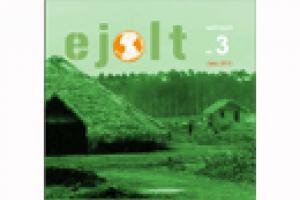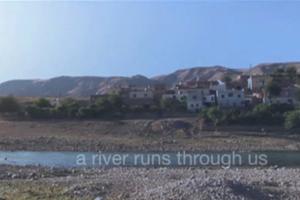Timber Plantation concessions are a model of forest exploitation conducted by corporations in Indonesia. More than 9 million hectares of timber plantation concessions have already been awarded by the Ministry of Forestry, though not all of these concessions are used for timber plantations. Up to 2011, less than half of the total area of timber plantation licenses was being managed by the license holder corporation.
Indonesia
Publications
11 June 2012
After many years of supporting local struggles and disseminating information from different countries on tree monocultures and its impacts, WRM presents a new report to all those involved in these struggle (1). No better time than the month of September 21st, International Day of Struggle against Tree Monocultures (2), to launch this new report.
Bulletin articles
30 May 2012
The International Labour Organization (ILO) is the UN agency that oversees labour issues, shaping policies and programmes mainly related to labour standards for the protection of workers.
Bulletin articles
30 April 2012
How far would you go to protect your forest?
Villagers from Pollo community in South Central Timor regency in Indonesia have set a remarkable example, weathering years of bureaucratic indifference, enduring violence from thugs and embarking on an odyssey across their country's archipelago in search of support for their defence of local trees and land.
Other information
29 January 2012
The Indonesian police attacked a peaceful demonstration in SAPE Harbor on December 24, 2011, killing three persons and injuring at least twenty-nine others.
The protestors were members of Anti-Mining People's Front (FRAT) and were demanding against the Bima Gold Mine Project, owned by Australian PT. Arc Exploration Ltd.. The undertaking will dismantle the agricultural lands and disrupt water resources with very harmful consequences on the environment and the lives of local people who are mainly fisherpersons and farmers.
Bulletin articles
30 December 2011
A new report published in November 2011, exposes how local police in the Province of Jambi on the Indonesian island of Sumatra, working with oil palm plantation staff, systematically evicted people from three settlements, firing guns to scare them off and then using heavy machinery to destroy their dwellings and bulldoze concrete floors into the nearby creeks. The operations were carried out over a week in mid-August and have already sparked an international controversy. Andiko, Executive Director of the Indonesian community rights NGO, HuMa said:
Other information
30 October 2011
The Dayak have inhabited the forest in Kalimantan for a long time before the current State of Indonesia was established. Their adat (custom) has ensured the integrity of the environment and the forest until imposed commercial exploitation started to devastate, damage and encroach on their customary land. Since then, they denounced that decades of destructive projects imposed either directly or indirectly by the Government have progressively disempowered and impoverished the Dayak through the uncontrolled and often illegally issuing of permits and/or concessions through corruption.
Other information
30 September 2011
Industrial tree plantations have often expanded through direct land expropriation and through manipulative land purchase. But there is a third kind of mechanism by which such expansion indirectly occurs, a mechanism that is somehow less-known although it is probably as important – if not more – than the two previous ones: debt relations. This short article intends to shed some initial light on this mechanism with special reference to commercial tree crops in Indonesia.
At the level of the small planter
Bulletin articles
5 June 2011
In 2009, Rio Tinto, one of the world biggest mining companies, explained how it hoped that it could use REDD, “as an economic tool to offset Rio Tinto’s carbon footprint and to conserve biodiversity”. That, in a nutshell, explains the mining industry’s interest in REDD. Companies hope to continue mining, while investing comparatively small amounts of money in REDD credits to “offset” the destruction.
Bulletin articles
30 March 2011
Indonesia: Since April 2005, two companies involved in the building of a mega-dam in Indonesia, both owned by the a former Vice President of Indonesia, have been compulsory purchasing land from people around the Sulewana river in Poso, Central Sulawesi to make way for the construction and the displacement it will cause.
The project, known as, Poso II will affect the lives of up to 2,000 people. Residents of Peura Village are attacked by police officers as they try to prevent construction access.
Other information
28 February 2011
Indonesia is a crucial country for REDD. It has one of the fastest rates of deforestation in the world. And, as a direct result of this deforestation (particularly the destruction of peatswamp forests) Indonesia is the world’s third highest emitter of carbon dioxide.
Other information
28 February 2011
Asia Pulp & Paper (APP) is a giant pulp and paper company with a notorious eco-criminal record. It is responsible of deforesting Indonesian forests and peatlands in Riau province, Sumatra, destroying the territory and livelihoods of indigenous communities who have been living there for centuries and threatening the survival of some of them as well as leading Sumatran tigers, elephants and orangutans to the verge of extinction.


